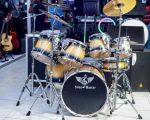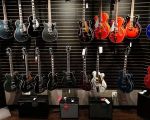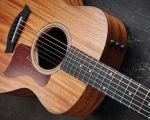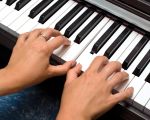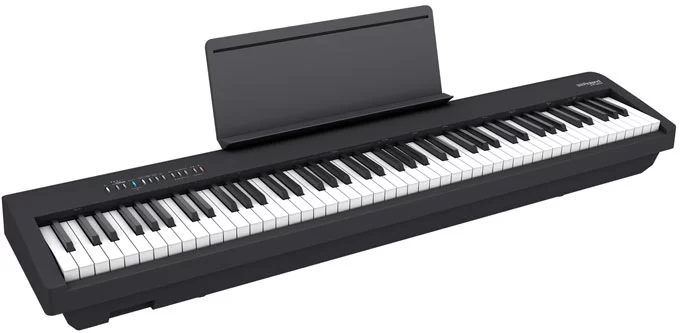
Top Portable Keyboards for Practice: Best Picks for Musicians in 2025
As a musician, practicing is key to improving your craft, and having the right equipment can make a world of difference. One of the most versatile tools for any musician, whether you’re just starting or already well-versed in music, is a portable keyboard. These instruments offer the flexibility to practice anywhere, whether at home, in a coffee shop, or on the go. I’ve personally used several portable keyboards over the years, and in this article, I’ll share my insights into the best options available for practice in 2025.
Why a Portable Keyboard is a Game-Changer for Practice
One of the main advantages of owning a portable keyboard is the ability to take your practice sessions wherever you go. I remember when I first started playing, I felt restricted by bulky, traditional pianos. I had to practice only at home, and it limited my growth. Once I switched to a portable keyboard, my practice sessions became more productive and flexible. Whether in a park or a friend’s house, I could pull out my keyboard, set it up, and start playing.
Moreover, portable keyboards are typically lightweight and have a compact design, which makes them perfect for travel. Some even come with built-in speakers, so you don't need to worry about carrying extra equipment or being in a noisy environment. All in all, portable keyboards are a game-changer for musicians who want to take their practice sessions beyond the four walls of a studio or living room.
Top Picks for Portable Keyboards for Practice
There are numerous options available on the market, but after years of experience, here are some of my personal top picks for portable keyboards that are perfect for practice.
1. Yamaha P-45
The Yamaha P-45 is one of the best portable keyboards I’ve ever used for practice. It's incredibly affordable, yet still delivers fantastic sound and feel. I first bought it when I was looking for something that had a more realistic piano feel without breaking the bank. With its 88 weighted keys, it replicates the action of an acoustic piano quite well. This was a huge selling point for me, as it helped me transition smoothly from digital to acoustic playing.
Its portability is another major advantage. Weighing only 25 pounds, it's easy to carry around, and its compact design fits perfectly in tight spaces. The Yamaha P-45 also comes with built-in speakers and offers several preset voices that help with different practice styles. Whether you're playing scales, chords, or working on complex compositions, this keyboard has you covered.
2. Roland Go:Keys
If you're looking for a more modern, tech-savvy keyboard for practice, the Roland Go:Keys is an excellent choice. One of the standout features is its Bluetooth capability, which allows you to connect it to your smartphone or tablet for interactive lessons or backing tracks. This was particularly useful for me when I wanted to learn new songs through apps like Flowkey or Simply Piano.
The Go:Keys offers 61 keys, making it lightweight and easy to carry around. The sound quality is remarkable for a keyboard of its size, and the keyboard also includes a variety of built-in sounds and rhythms. I particularly enjoyed using the rhythm section to practice improvisation and composition.
3. Casio Privia PX-160
For those who need something a little more advanced for their practice, the Casio Privia PX-160 offers excellent value. It features 88 weighted keys, making it a great choice for serious pianists. The action of the keys is responsive and feels close to that of an acoustic piano. I found this particularly useful when I started working on more advanced techniques like hand independence and finger strength.
What I love about the PX-160 is that it has built-in speakers with a full-range stereo system, which helps make practicing at home or in a small space more enjoyable. Additionally, its slim design makes it highly portable, and with its rich sound library, you can explore a range of musical styles while perfecting your technique.
4. Korg B2SP
The Korg B2SP is another fantastic portable keyboard I would highly recommend for practice. The 88-key digital piano comes with a stand and a pedal, making it a great all-in-one solution for musicians who want to practice without needing to purchase additional accessories. This keyboard has a great feel to it, with responsive, weighted keys that mimic the touch of a real piano.
When I tried the Korg B2SP, I was blown away by the sound quality, which is powered by Korg’s proprietary piano sound engine. Whether you’re playing classical pieces or experimenting with different genres, the B2SP has you covered. It’s easy to use, and the sleek, modern design makes it a great addition to any room or practice space.
Things to Consider When Choosing the Best Portable Keyboard
Choosing the right portable keyboard for practice depends on your specific needs. Based on my experience, here are a few factors you should consider when making your decision:
Key Count
If you're looking for a keyboard to simulate the feel of a traditional piano, a full-sized 88-key keyboard is the best option. But, if you need something more compact or are just starting out, you might want to opt for a 61-key or 76-key model. I initially started with a 61-key keyboard before upgrading to a full-sized one, and I found that a full keyboard is definitely a better choice for long-term progress.
Weighted Keys
Weighted keys replicate the feel of an acoustic piano and are a great feature for practicing finger strength and developing proper technique. If you're serious about learning the piano, you’ll definitely want a keyboard with weighted keys. This was a game-changer for me when transitioning from digital to acoustic pianos.
Sound Quality
The sound quality of a portable keyboard is extremely important. Many affordable options offer decent sound, but higher-end models like the Casio Privia PX-160 and Yamaha P-45 provide more natural, rich tones that make practicing more enjoyable and realistic. Trust me, when you play on a keyboard with great sound quality, it makes a big difference in your overall experience.
Portability
Since portability is a major benefit of these keyboards, consider the weight and design. Lighter keyboards are great for musicians who need to carry them from one place to another, but be sure that the design still feels sturdy and easy to play on.
Conclusion
After testing many portable keyboards, I’ve learned that the best keyboard for you is the one that fits your needs, budget, and practice goals. Whether you’re a beginner or a seasoned musician, there’s a portable keyboard out there that will help you reach your potential. From affordable models like the Yamaha P-45 to advanced options like the Casio Privia PX-160, there’s no shortage of great choices to elevate your practice sessions in 2025.
If you’re ready to find the perfect portable keyboard for practice, be sure to check out our website at Beat Trigger, where you can find the best instruments and gear tailored to your musical journey.

